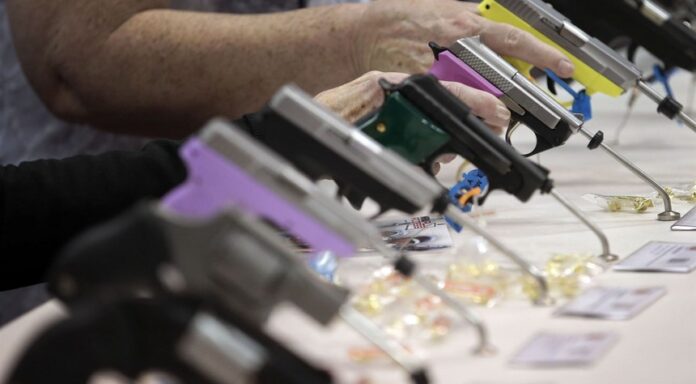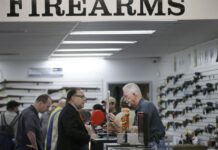Earlier this year gun owners in North Carolina won a major victory when the state legislature overrode Gov. Roy Cooper’s veto of a bill repealing the state’s pistol-purchase-permit law; an artifact of the Jim Crow era that gave sheriffs the power to deny handgun ownership to anyone they deemed “unsuitable”. Gun control activists and anti-gun politicians derided the vote, with North Carolinians Against Gun Violence asserting that “We will wake up five or 10 years from now and see that our gun homicide and gun suicide rates have risen.”
It’s downright silly to claim that the supposed impact of repeal will only be felt five-to-ten years in the future, or that repeal of a law that only targeted legal gun owners would have any real effect at all on violent criminals in the first place, but at Carolina Journal write Maclain Conlin has been crunching the numbers for the first four months after repeal took effect, and found no evidence that scrapping the pistol-purchase-permitting system has led to an explosion in crime.
The Durham Police Department is the gold standard for data on gun violence, with its website providing a weekly tally of firearm-related arrests. As a result, Durham serves as one of the best localities to measure SB 41’s influence. This data is displayed for 2023 in the graph above. The third vertical line from the left marks the enactment of North Carolina’s pistol permit repeal.
From Jan. 1 until March 29, the Durham Police Department arrested an average of 10.9 suspects per week for offenses involving a firearm. Following the repeal, this average decreased slightly to 9.5 arrests per week. As a result, we know that SB 41 did not lead to an immediate surge in gun-related crime within Durham.
Charlotte is North Carolina’s largest city and serves as the seat of government for Mecklenburg County. Its recent problems with gun violence by juveniles and the Department’s decision to crack down on illegal gun ownership make the city an effective testing ground for the consequences of loosening firearm restrictions.
The Charlotte-Mecklenburg Police Department releases quarterly statistics on various offenses. Examining the number of armed robberies is the most reliable way to assess the extent of gun violence in Charlotte, since this is the only data set that singles out a crime linked to firearms.
In the first quarter of 2023, Charlotte experienced 308 armed robberies, and this number rose to 323 in the second quarter. At first glance, this would suggest that SB 41 may have led to a 4.8% increase in gun-related crime. However, this fails to take into account the statistics from last year. In the first quarter of 2022, Charlotte experienced 325 armed robberies, and this number rose to 408 in the second quarter, adding up to a 25% increase. As a result, while gun-related crime did rise following the enactment of the pistol permit repeal, it is unlikely that the repeal was the cause, since this increase occurred at a much slower rate than in the previous year.
Conlin also looked at Charlotte suburb Carrabas County, which reports three armed robberies this year, a slight uptick compared to last year but hardly evidence that the pistol-purchase-permit repeal is to blame. As Conlin concludes:
… it is clear that North Carolina did not experience an immediate surge in gun-related crime following the enactment of SB 41. The public safety harms its opponents warned of were apparently overstated, or, if these claims were correct, the harms have not immediately materialized.
I’m gonna go with the former. The pistol-purchase-permit system allowed sheriffs to bar folks who’d passed a background check and met all the other qualifications of gun ownership from legally buying a handgun, so it was never going to have a big impact on prohibited persons or illicit gun sales among criminals. Violent crime rates will continue to rise and fall just as they always have because the law’s repeal will make little difference to the vast majority of those perpetrating armed robberies, home invasions, and targeted shootings. We’ll check back in five years, but my guess is that by then the anti-gunners will have moved on other complaints and false narratives, especially if the North Carolina legislature adopts permitless carry in the months ahead.




